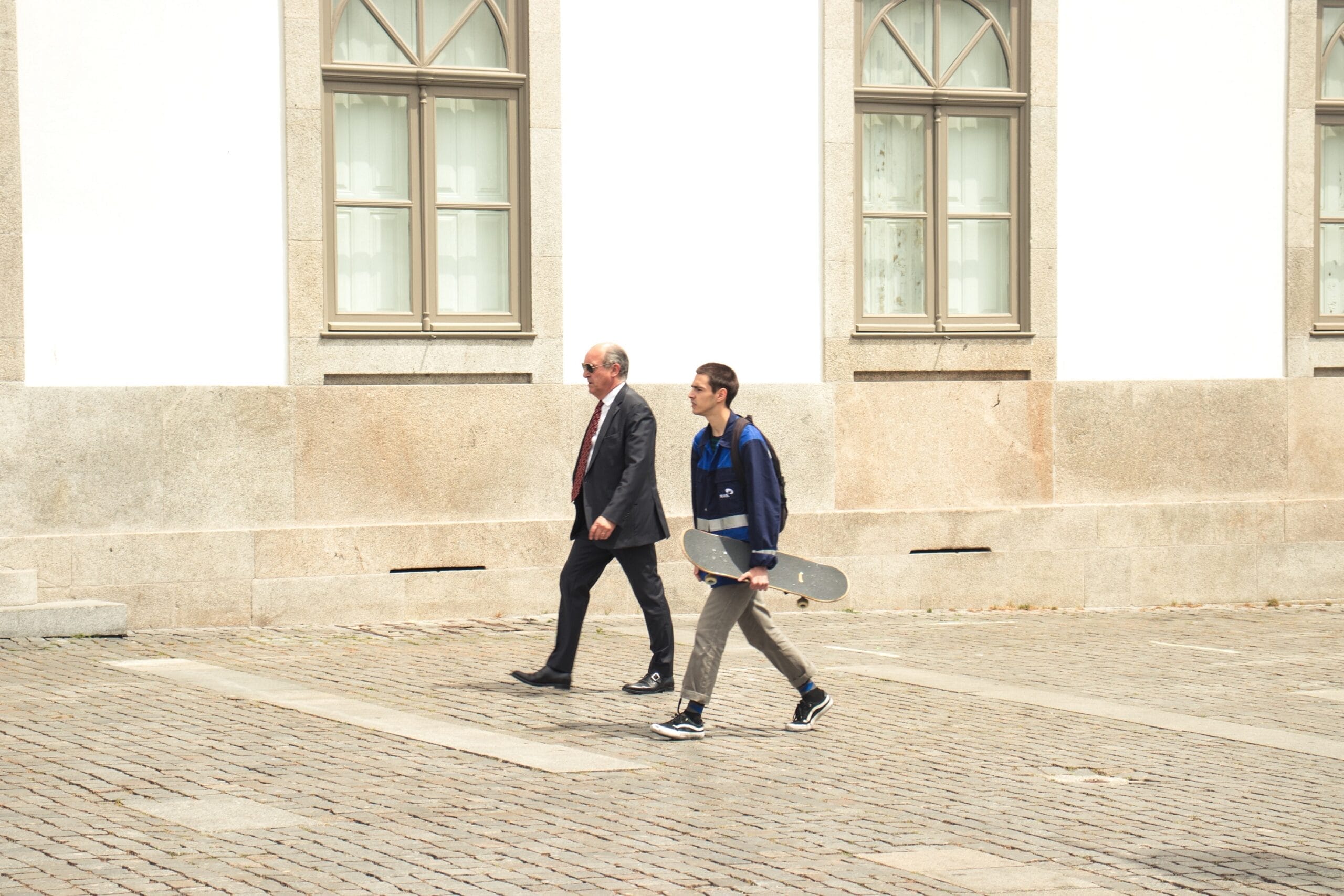Today, managers are facing the challenge that four to five generations work in the company at the same time and want to be led properly. All of them have specific ideas as to how they want to be led and motivated in professional, personal, and time- and space-related terms. Thus, a Baby Boomer working in the office wants to be led differently from a Millennial working from home via Zoom. Also, companies cannot simply elect to pursue one single goal, i.e. to concentrate on economic success, environmental aspects or social concerns, but must juggle all the balls at the same time.
When I am writing about young people in working life here, then I am concentrating on the two generations Y and Z. How do these two generations differ from earlier ones? The young generations are generally thought to set great store by flat hierarchies, aspire to become leaders themselves and appreciate quick promotion prospects. They also attach importance to a cooperative modus operandi and working culture, flexibility with regard to working hours, free choice of employers, and variable office structures (such as working from home or even working from anywhere), as well digital forms of work.
Can lawyers be compared to cats?
As a rule (trigger warning: stereotype), lawyers are characterised by the fact that in comparison with the general public, they accord a higher degree of preference to working autonomously and independently and are less able to accept criticism (key word: resilience). They even respond defensively to negative feedback. “In other words, it’s common for lawyers to resist being managed, to bridle at being told what to do, and to prize their independence.” (Larry Richards, Herding Cats: The Lawyer Personality Revealed, 1998). Or to put it differently: lawyers do not want to be led; they want to work independently. This can also be found in the Swiss Rules of Professional Conduct with regard to independence (Art. 3 sec. 1 and 2, [no official translation]): “Lawyers conduct their activities independently and in their own disciplinary responsibility. Such independence requires lawyers to avoid any situation whereby in the exercise of their profession they are exposed to the influence of third parties which are not subject to professional supervision.” The last addition at least permits superiors, provided that they are also lawyers, to exert some influence on lawyers employed by them. Thus, leadership would not be prohibited.
And now the two combined: how do you lead (a) young (b) lawyers?
Each of the two above-mentioned perspectives on its own confronts executives with a challenge that should not be underestimated. In conjunction, however, they require a fair amount of tact. That’s why some good news may well provide relief. Twenty years after Larry Richards’s study (cf. above), the Bucerius Law School surveyed its students and alumni aged 18-38 years to examine whether the results of that study were reproducible. The upshot was that with regard to the character trait of independence, this was not the case. These participants aspired to less autonomy, liked to work in organisations with defined objectives; rather, they were team players and pack animals (Emma Ziercke/Markus Hartung, Sind Anwälte wirklich Katzen?, LTO Legal Tribune Online 2018, German). Whether this result can merely be ascribed to the interviewees’ young age and the fact that a majority of them were students who had not entered professional life yet, may be left open.
In addition to this, a third dimension: changed framework conditions
In addition to the two above-mentioned dimensions, the (working) world changed in 2020. To begin with, employees were sent home. Subsequently, they became accustomed to their new freedom while working from home. And now companies are ordering them back to the office – sometimes under threat of dismissal. The current result is a typically Swiss compromise: they are granted 1-2 days’ WFH.
Today, every company must take the issue of sustainability into consideration. Of course, there are legal provisions by now, but in this context, the focus is more on practical implementation. Thus, employees with their commuting costs are often among the greatest contributors to a company’s carbon footprint. Should we therefore permit employees to work more from home if possible after all? Furthermore, employees with a low degree of office preference like to emphasise that WFH even boosts their well-being and productivity. This needs to be proven.
What needs to be done?
When employees work from home, the company is unable to attend to its duties of care (#loneliness, #knowledge transfer), the S in ESG. What can be done, then, in order to be able to fulfil one’s legal obligations while preventing employees from giving notice? If we exert excessive pressure on employees, they give notice because they will soon find another job on the tight labour market (#skills shortage). And if we fail to take the issue of sustainability seriously, we will be unable to attract new employees, or the existing ones will give notice because they cannot identify with their employer (any longer) (#climate quitting). To avoid any misunderstandings: the above naturally also applies to executives, who have their own requirements and expectations, too, and may be apt to give notice. Not a very simple situation for responsible companies (#VUCA).
Leadership style to be tailored to situation and addressees
This demands a high degree of attentiveness from managers to identify different requirements, sufficient flexibility and a transformational style of leadership, empathic leadership competence and a great deal of #resilience. In spite of all technical achievements, directly experienced interpersonal relationships continue to be of the essence (#cave dwellers), which is why here, too, typical leadership conduct will be effective (#trust). Technical and environmental change cannot be undone. We must concentrate on output and productivity instead of taking our bearings from input and time of attendance (cf. analogy with the hourly rate business model). Today, many things are simply part and parcel of changed or new values and general working conditions. Companies and executives will do well to adapt to them proactively.
Back to the initial question: do young lawyers need leadership too in professional life? Indeed, they do, like the generations before them, they have not yet completed their education and training. The only difference is the fact that the type of leadership has to adapt to new circumstances and requirements if we want to attract and retain the young generations.
About the author(s)

Prof. Dr. Bruno Mascello Director, Academic Director Law & Management
Relevant executive education
Newsletter
Get the latest articles directly to your inbox.
Share article
More articles
The Future of Work and the Central Role of Diversity & Inclusion
Leadership in Transition: Five Trends of Modern Leadership
The future of work – also relevant for the legal market?
Why inclusive leadership matters for every generation
Do young lawyers need leadership, too? Classification according to generations – slightly arbitrary, but useful


